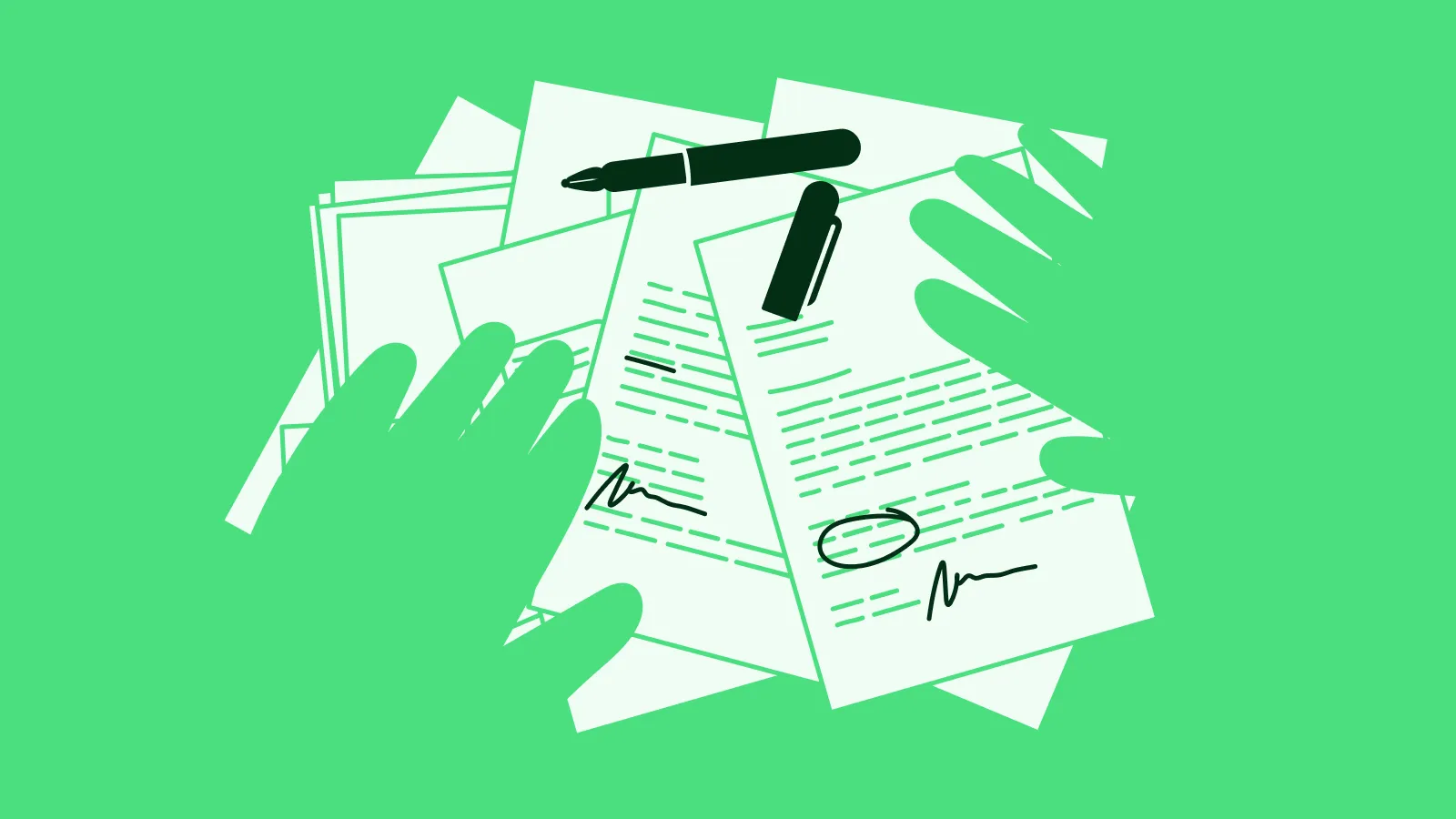Offset Mortgages
Find out how an offset mortgage can use your savings to either reduce your repayments or shorten your term, and help you pay off your mortgage quicker.
Your home may be repossessed if you do not keep up repayments on your mortgage.
Exclusive broker partner to

Author: Michael Whitehead, Head of Content
Reviewer: Paul Coss, Haysto Co-Founder and Chief Customer Officer
Updated: Nov 17 2025 7 mins
Getting a mortgage shouldn't mean leaving your savings to gather dust. An offset mortgage is a clever way to use your savings to your advantage, helping you either pay off your loan sooner or reduce your monthly payments. It’s a great option for people who have money saved up but are worried about the low interest they’re actually earning.
Quick Summary:
An offset mortgage links your savings account directly to your mortgage, so you only pay interest on the difference between the two balances.
Your savings don't earn interest, but the amount of interest you save on your mortgage will usually be far greater.
You can choose to either reduce your monthly mortgage payments for more financial breathing room or keep your payments the same to pay off your mortgage years ahead of schedule.
The money in your linked savings account is not locked away. You can withdraw or add funds at any time, but be aware that withdrawing cash will increase the interest you pay on your mortgage.
This type of mortgage is ideal for disciplined savers, self-employed individuals, and higher-rate taxpayers who want their money to work harder for them.
What Is an Offset Mortgage?
An offset mortgage links your mortgage to a separate savings account held with the same lender. The money in your savings isn't used to pay off the mortgage directly. Instead, the lender 'offsets' the amount you have in your savings against your mortgage balance. This means you only pay interest on the difference.
For example, if you have a £200,000 mortgage and £25,000 in your offset savings account, you’ll only pay interest on £175,000. Your savings won't earn any interest themselves, but the interest you save on your mortgage will usually be far greater than any interest you would have earned in a standard savings account.
How Does an Offset Mortgage Work?
The core idea is simple: your savings reduce your mortgage interest. When a lender calculates your monthly repayment, they use a formula that takes your mortgage balance and subtracts the balance of your linked savings account. You then pay interest on that lower amount.
This gives you two main ways to benefit. You can either lower your monthly payments or pay off your mortgage faster. Both of these options are useful, depending on your financial goals. Let’s break down how each works with a simple scenario.
Mortgage: £250,000 over 25 years at a 4.5% interest rate.
Monthly payment without offset: £1,320.
Offset savings: £50,000.
Option 1: Reduce Your Monthly Payments
With an offset of £50,000, you only pay interest on £200,000. This lowers your monthly mortgage payment to £1,056. Your mortgage term stays the same at 25 years. This option is great for anyone who wants a bit more cash flow each month. It gives you some extra breathing room in your budget, especially after moving into a new home when things can often feel tight.
Option 2: Pay Off Your Mortgage Faster
For this option, you keep your monthly payments at the original £1,320. With your £50,000 offset, more of each monthly payment goes towards paying off the capital, as you are paying less in interest. This means you’re making an effective overpayment every month. In this scenario, you could pay off your mortgage in just over 18 years, saving you seven years of repayments and tens of thousands of pounds in interest.
This option is perfect for those who are focused on becoming mortgage-free as quickly as possible. By paying the same amount as a standard mortgage, your savings will work hard in the background, making a real difference without you having to do anything else.
Who Is It Aimed At?
Offset mortgages are a specialised type of mortgage, and they’re best suited for certain types of borrowers. The ideal candidates are people who have a substantial amount of savings that they don’t need for day-to-day spending. It's also an excellent option for anyone who receives regular bonuses or commission as part of their salary, or for self-employed individuals with fluctuating incomes.
Here’s Why:
High Earners with Bonuses: If you receive a large annual bonus or commission, you can put it straight into your offset savings account. This will immediately reduce your mortgage interest, and you can withdraw the money later if needed.
Self-Employed: For self-employed individuals who might need to keep a buffer of cash for tax payments or to smooth out any dips in their income, an offset mortgage offers a good solution. The money is easily accessible, but it's working to reduce your interest in the meantime.
Disciplined Savers: If you’re a diligent saver who keeps a healthy cash buffer, an offset mortgage can make that money work harder for you. Instead of sitting in a low-interest savings account, it’s actively saving you money on your mortgage.
Higher-Rate Taxpayers: For higher-rate taxpayers, the interest saved through an offset mortgage can be more valuable than the interest earned in a regular savings account, as the interest is not taxed. This is a significant advantage for those in higher income brackets.
Are Offset Mortgages a Good Idea?
Like any mortgage, an offset mortgage has its upsides and downsides. It's important to weigh everything up carefully before making a decision.
Why They’re a Great Idea:
Reduce your mortgage interest: The main benefit of an offset mortgage is that your savings reduce the amount of interest you’ll pay on your loan.
Access to your savings: Your savings are not locked away. You can still access and withdraw your cash at any time without any penalties, which is a key difference from overpaying on a standard mortgage.
Flexibility to pay off faster or reduce payments: You can choose to either shorten your mortgage term or lower your monthly outgoings.
Tax efficient: The interest you save on your mortgage is not taxable, which is particularly beneficial for higher-rate taxpayers.
Pay off your mortgage sooner: By keeping your monthly payments the same, you can get mortgage-free years ahead of schedule.
What to Think About:
Higher interest rates: Offset mortgages tend to have a slightly higher interest rate compared to a standard mortgage. It's important to check that the interest you save is worth the higher rate.
Fewer options: Not all lenders offer offset mortgages, so your choice of products and deals may be more limited.
No interest on savings: The money in your offset savings account will not earn any interest. For some people, a high-interest savings account or other investments might provide a better return.
Borrowing power: Some lenders may require a higher minimum deposit for an offset mortgage, which could reduce your borrowing power.
Can You Still Withdraw and Pay Into Your Savings Account?
Yes, absolutely. One of the biggest benefits of an offset mortgage is the flexibility it offers. The linked savings account works just like a regular one, so you can deposit money and withdraw it whenever you need to.
However, you should keep in mind that every time you withdraw money, your mortgage interest calculation will change. With a lower savings balance, the amount you offset will also be lower, which means you’ll start paying interest on a larger portion of your mortgage. If you have the flexibility to only use the account for saving, the long-term rewards will be greater.
What Are the Alternatives?
If an offset mortgage doesn’t feel like the right fit for you, there are other ways to use your savings to reduce your mortgage and get debt-free sooner. Here are a couple of popular alternatives to consider:
Overpaying on a Standard Mortgage
Most standard mortgages allow you to overpay up to a certain limit each year, usually around 10% of your outstanding balance, without any penalties. Overpaying on your mortgage has the same effect as an offset mortgage—it reduces the amount you owe, allowing you to pay off your mortgage earlier and save money on interest in the long run.
The key difference is that with overpayments, the money is permanently gone and cannot be accessed again. With an offset mortgage, your savings are still available to you if you need them.
Using Your Savings as a Larger Deposit
If you haven’t yet bought a property and have a substantial amount in savings, you can use all or some of it to create a larger deposit. This will reduce your loan-to-value (LTV) ratio, allowing you to access a wider range of mortgage deals with lower interest rates. A lower mortgage amount also means a lower monthly payment, giving you more disposable income.
Why Pick Picnic for Your Offset Mortgage?
Offset mortgages are a relatively rare mortgage product, with a limited number of lenders offering them. Finding the right offset mortgage deal on your own could be a challenging and time-consuming process. Having an experienced mortgage broker on your side - like us! - makes things much easier and more efficient.
With access to these types of mortgage products, easy-to-use technology, and 100+ experts, our award-winning service is with you every step of the way. Here’s how we can help:
Finding you the best offset mortgage deals: Our mortgage team will already know which lenders are currently offering the most competitive rates for this type of home loan. They can compare the current offset mortgage deals available to find the one that’s right for your circumstances, including exclusive offers not generally available elsewhere.
Your mortgage, made simple from start to finish. Our online portal allows you to track your mortgage application step-by-step, sign and upload documents in seconds, and contact your mortgage team at any time. No back-and-forth emails. No printing. No guesswork. Everything you need, all in one place, so you can stay organised and in control of your mortgage journey.
Making mortgages possible, whatever the circumstances: Our team of advisors have a clear understanding of the eligibility criteria used by each lender and will identify the one that's best placed to help. Our sister brand, Haysto, specialises in helping customers who've been turned away elsewhere. For anyone with a complex income or adverse credit record - we’re here to support you!
Start Your Mortgage Journey with Picnic!
An offset mortgage is a flexible option that puts your savings to work for you. By linking your savings account to your mortgage, you can either lower your monthly payments for more breathing room or make a real dent in your mortgage term. It’s perfect for anyone with a healthy cash balance who is looking to make their money work a little harder.
While offset mortgages may not be suitable for everyone, they can be a solid choice for self-employed individuals, those who receive regular bonuses, or anyone with a substantial amount of savings. Ultimately, the right mortgage for you is the one that fits your life perfectly.
Ready to explore your options and find out if an offset mortgage is the right choice for you? Get in touch, and one of our Mortgage Experts will contact you to get started.
Frequently Asked Questions
A fixed-rate offset mortgage works exactly the same as a standard offset mortgage, but the interest rate is fixed for a set period, usually 2, 3 or 5 years. During this time, your mortgage repayments will not change, regardless of what happens to the Bank of England base rate. This is a popular option as it gives you the stability of a fixed-rate deal with all the benefits of an offset mortgage.
A family offset mortgage is a type of mortgage that allows a family member to link their savings to your mortgage. Your parents or another relative can use their savings to reduce the interest on your mortgage, helping you get onto the property ladder and pay off your home faster. This is a worthy alternative to a gifted deposit, as the family member doesn't have to give up their savings permanently. Their money is still theirs and can be returned once you have paid off a certain percentage of the mortgage.
Yes, you can still overpay on an offset mortgage, as most lenders allow for this. In a way, you are already overpaying if you have a healthy savings balance and choose to keep your monthly payments at the original amount. The money you save in interest is automatically applied towards paying off the capital, which means you can pay off your mortgage sooner. If you have any additional savings, you can put them towards paying off your mortgage quicker.
Related Pages
Porting Your Mortgage

The Picnic Guide To Buying a Home

How Conveyancing Works

How Stamp Duty Works

Speak to One of Our Experts
First or next move, remortgaging or investing - get clear advice from our award-winning experts to help you find the right mortgage.
Your home may be repossessed if you do not keep up repayments on your mortgage.